You’re in luck if you’d rather increase your energy without experiencing negative side effects like anxiety, insomnia, or stomach problems. There are lots of coffee substitutes that will make your day. The best part is that a lot of them—like yerba maté, guarana, and green tea—also have additional health advantages.
What affects does coffee have on the body?
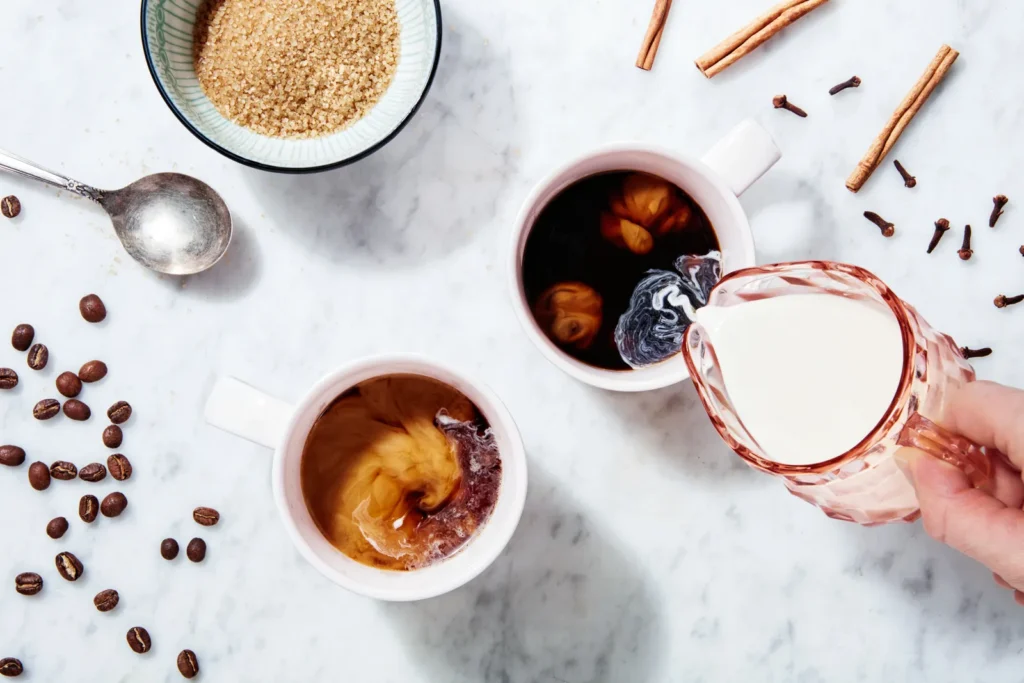
Natural stimulants like caffeine work on the nerve system and brain to make people more alert and keep them from getting tired too soon. These factors make it evidently quite beneficial when trying to feel or remain awake. Of course, there are health benefits to coffee as well. It can be challenging, though: The dreaded caffeine crash, which is a reduction in the stimulating benefits of coffee that leaves you feeling tired—exactly what you want!—often occurs 15 to 30 minutes after consuming coffee! Because of the repeated need to consume more caffeine to offset the effect, this can lead to a vicious cycle.
And there’s no denying that consuming too much caffeine can have a number of negative physical and psychological repercussions. among the most prevalent? Heartburn, restless nights, and jitters. This is particularly true if you drink coffee empty-handed, which, let’s be honest, a lot of us are guilty of doing frequently. Caffeine causes the stomach cells to create hydrochloric acid, which aids in digestion, but it can be hazardous if you do so in the absence of food. Overindulgence in caffeine can also impair the body’s capacity to balance cortisol and melatonin levels, leading to long-term stress and a disruption in our sleep patterns.
Coffee Substitutes for Increased Energy and Improved Sleep
Giving up coffee doesn’t have to mean giving up on a cozy morning routine; in fact, occasionally, a hot sip of something less potent might surprisingly offer the same energizing effects. A glimpse of some of the greatest caffeine-free, lower-caffeine, or healthier coffee substitutes is provided here.
-
Black Tea
Alright, it’s obvious that black tea contains caffeine, but the average amount of caffeine in an eight-ounce cup of brewed black tea is around half that of an equivalent amount of coffee. The caffeine in black tea comes from tannins, a kind of polyphenol rich in antioxidants that is also present in wine, chocolate, spices, and yes, coffee.

However, tea’s alkaloids make it possible for the body to absorb caffeine much more gradually, reducing the likelihood of that nasty coffee crash. The best part is that tea has ellagitannin, a particular class of tannic polyphenol that has been found to promote the development of good gut flora. It might even possess anticancer qualities.
2. Green Tea: Most Healthy Coffee Substitutes
Please make green tea your everyday beverage of choice if you only have one. Green tea is among the world’s healthiest drinks, according to several extensive studies. Among the well-researched, benefits supported by evidence are: a high concentration of the chemical L-theanine, which reduces stress and boosts the brain, and a high concentration of catechin, a polyphenol rich in antioxidants that fights cancer.

Not only drinking green tea has been associated with lower rates of obesity and heart disease, but it also appears to improve longevity and blood-sugar balance. It could potentially aid in lessening sun-induced skin damage. Although green tea does contain caffeine, it is far less than coffee—roughly a third to a half less in an eight-ounce cup. Keep that in mind. A more balanced impact, meaning less jitteriness and craziness, may be produced by the high quantities of L-theanine in green tea, according to some studies.
3. Yerba maté: One of Excellent Coffee Substitutes
This classic South American beverage is an excellent substitute for coffee, but be aware that it has almost the same amount of caffeine. Maté has too many other advantages to be disregarded, though. Made from the ground, dried leaves of Ilex paraguariensis, a plant famed for its natural antioxidants and diuretic qualities as well as high polyphenol content, this supplement has great stimulating qualities and has been shown to enhance memory and focus span.
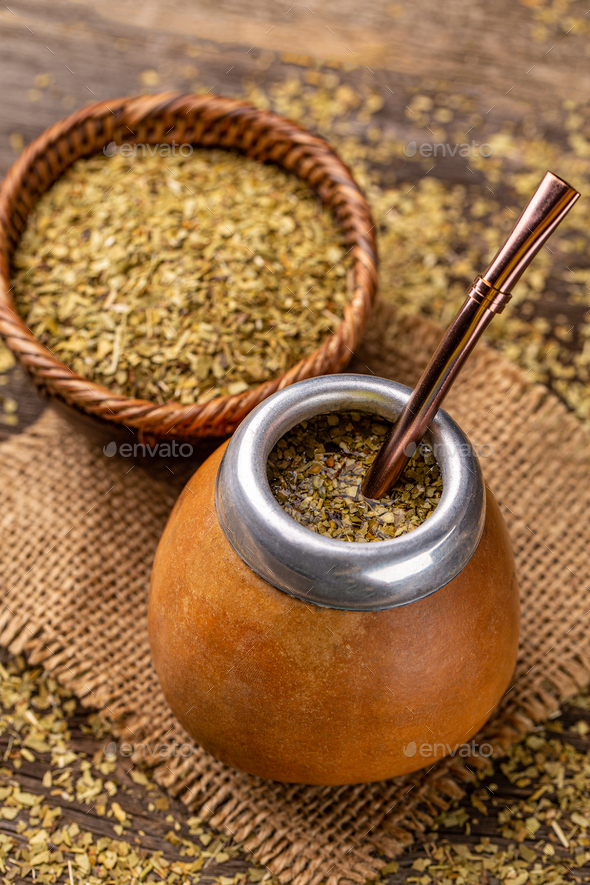
In addition to containing trace levels of vitamin C, thiamine, riboflavin, vitamin B6, potassium, calcium, magnesium, phosphorus, manganese, and iron, some studies have revealed that it has very similar antioxidant properties to green tea. It may even aid in the body’s fat burning process and enhance athletic performance, according to research.
4. Matcha
Consider matcha to be green tea with extra powers: Only grown and consumed in a slightly different manner, these are the same plant’s leaves. In contrast to steeping, matcha is often pounded and combined with water after being grown in the shade, which encourages the plant to produce more chemicals rich in amino acids and antioxidants. You are taking advantage of more of the previously described health benefits of green tea because you are eating the entire leaf.
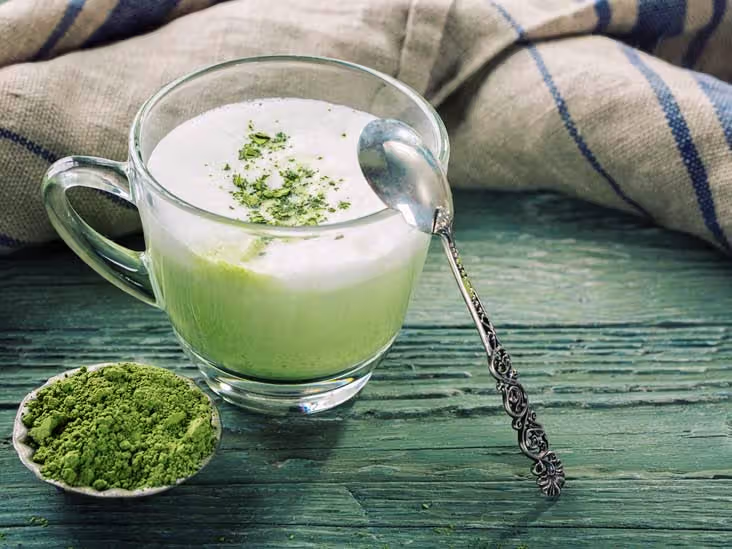
Thus, the amount of caffeine you’re consuming exceeds that of ordinary green tea: Approximately 70 milligrams of caffeine are found in one cup of matcha, compared to 35 mg in green tea. But even so, it’s a lot less than a cup of coffee, and don’t forget that you’re also getting the L-theanine’s balancing effects. Thus, sip away!
5.Guarana
Although guarana is best known as the plant extract that makes up many energy drinks, it comes from the Amazon region and has been a staple of Brazilian culture for many years. And even though it has a lot of caffeine, the naturally occurring anti-inflammatory chemicals, antioxidants, and polyphenols provide it a lot of positive health effects.

A synergistic effect that boosts cognitive performance is produced by theophylline (found in black tea) and theobromine (found in chocolate) found in guarana. Moreover, it has been demonstrated that the substances in guarana may help control cholesterol, alleviate pain, delay the growth of cancer cells, and have antiaging properties. In fact, it may help heal digestive issues and lessen heavy menstrual bleeding. Just proceed with caution: Little amounts of guarana work well because of its high caffeine content and it is better coffee substitutes.
6. Hot Water With Lemon
Yes, this is a simple one, but sometimes, as we all know, simple is best. In any case, a popular detoxifying practice is to start your day with hot water and lemon; it may be one of the perfect coffee substitutes for your typical morning cup of coffee.
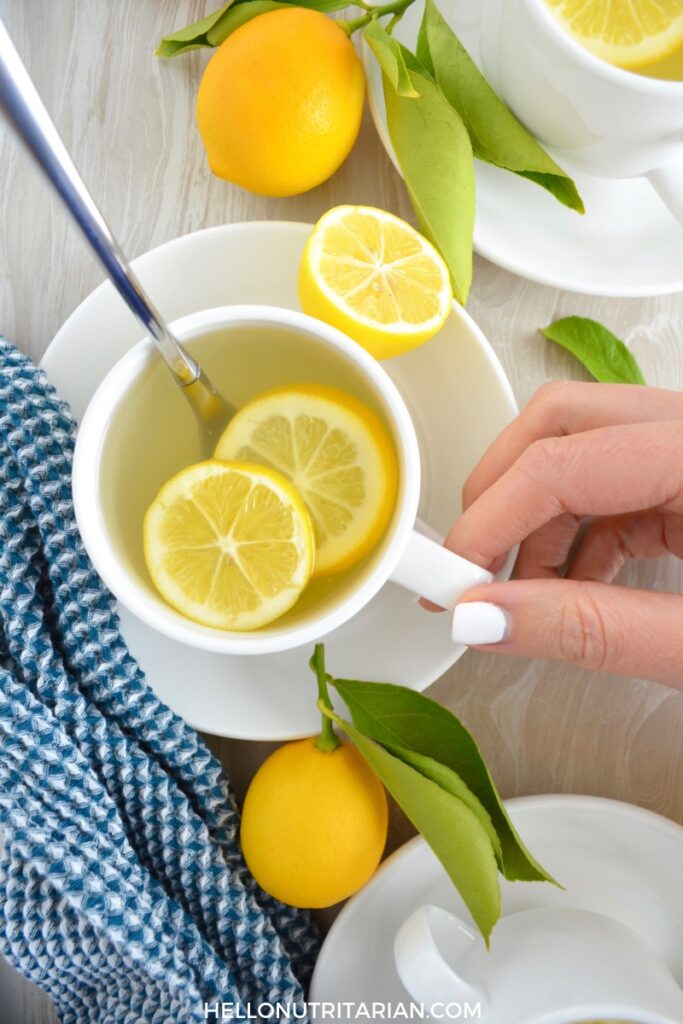
Its simplicity is what makes it so beautiful: it is hydrating, free of caffeine, and can aid in boosting the digestive system right away. In addition, it contains enzymes, calcium, iron, magnesium, potassium, vitamin B, and a plethora of other nutrients. According to some research, lemons have nutrients that lower blood pressure, which is good for our general health and may even have some benefits for mental health.
7.Mushroom Coffee: Most Effective Coffee Substitutes
Coffee flavor combined with the advantages of adaptogenic mushrooms? Sure, please. Best of all, most mushroom coffees have half the caffeine content of regular bean brews. Mushroom coffee typically consists of ground coffee augmented with medicinal mushrooms like chaga and cordyceps for an extra adaptogenic boost and it is one of best coffee substitutes. You won’t even be able to detect the mushrooms because it tastes so good.
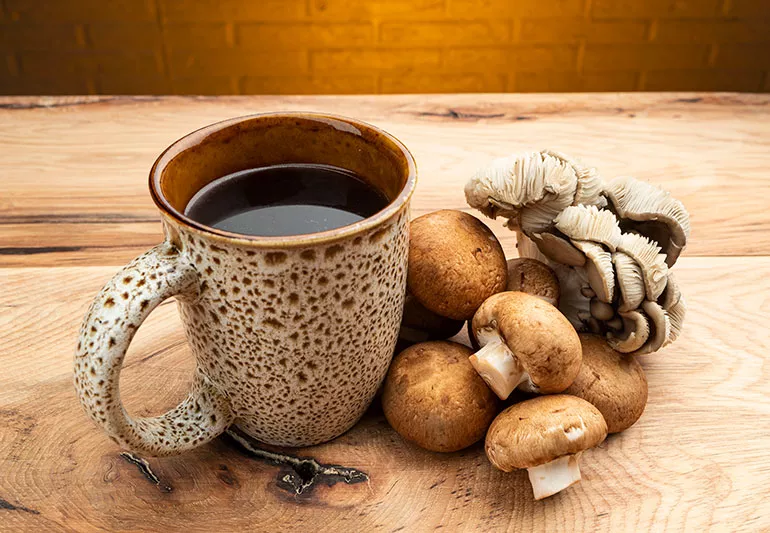
The benefits of the adaptogens found in mushrooms may include enhanced immune system performance, enhanced stress tolerance, and enhanced cognitive states, albeit the evidence on these points is still in its infancy. Mushrooms also include B vitamins, antioxidants, and minerals like potassium, selenium, phosphorus, and magnesium.



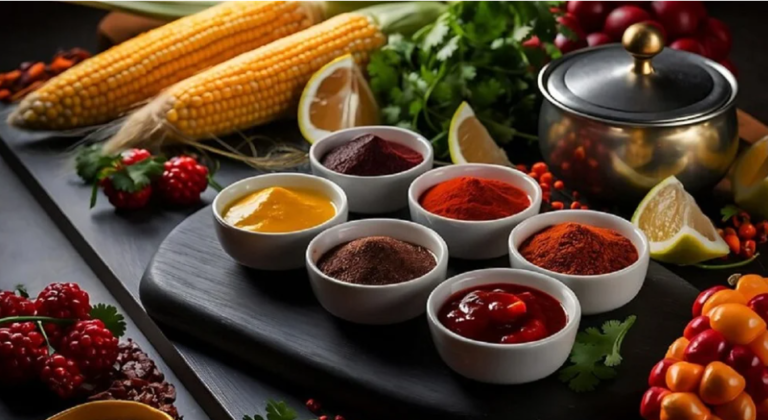








+ There are no comments
Add yours